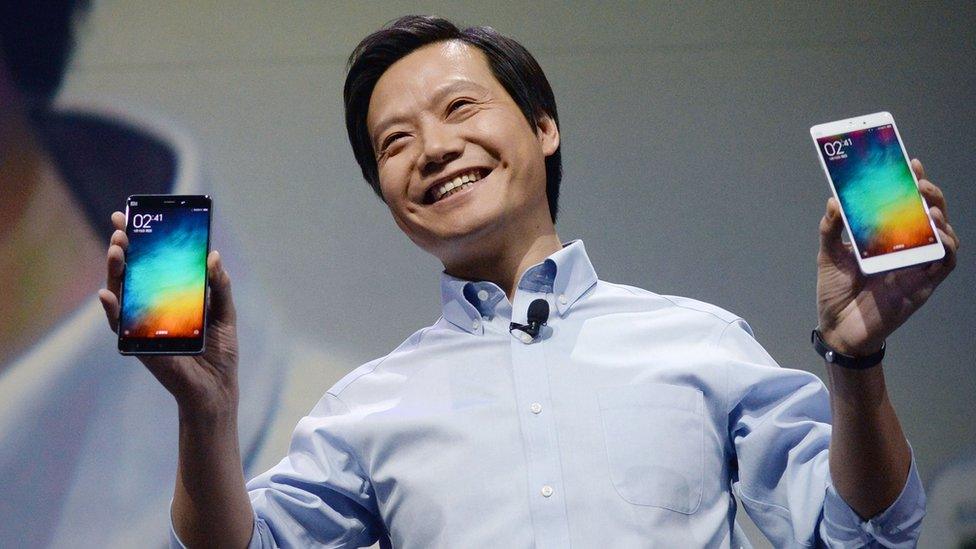Xiaomi chief says mobile phone firm grew too quickly
- Published

Chief executive Lei Jun said the firm needed to "slow down"
Chinese mobile phone giant Xiaomi has said how many handsets it sold in 2016 after claiming it had grown "too fast".
The world's fourth largest phone marker shipped 71 million devices in 2015 - up from 6.6 million in 2012.
But it experienced weaker demand in the past 12 months, with third-quarter sales down 27%, according to analysts.
Experts say Chinese phone makers are struggling in an increasingly competitive global market.
In an , Xiaomi's chief executive Lei Jun said: "In the first few years, we pushed ahead too fast.
"We created a miracle, but also drew on some long-term growth.
"So we have to slow down, further improve in some areas and ensure sustainable growth for a long-term future."
'No profit'
Since launching its first phone in 2011, Xiaomi has expanded rapidly, with sales surging to 57.6 million by 2014, according to market trackers IDC.
But the privately-held firm only sold 39 million phones in the first nine months of 2016, and its full-year sales are unlikely to match 2015's.
Xiaomi also runs its own retail stores
The firm, which also sells appliances and runs retail stores, it still made no profit from its phones.
Francisco Jeronimo, a research director at IDC, told the ┤¾¤¾┤½├¢: "Chinese phone makers are all facing the same problems.
"The overall smartphone market globally is very tough and not growing, so what they need to do is attract clients away from other brands.
"But they are not that well known, especially outside China, which makes it hard to compete against the likes of Apple and Samsung."
It comes after rival Chinese smartphone business, LeEco, in November.
In a letter to his staff, founder Jia Yueting said the company was consequently facing cash-flow problems and difficulty raising funds.
Patents
Despite Xiaomi's challenges, Mr Jun said he was optimistic about the future.
In his letter he claimed the firm's Indian sales hit $1bn (£816m) for the first time in 2016, while sales of its smart appliances reached $2.2bn (£1.8bn).
He also said Xiaomi had applied for more than 16,000 patents around the world, of which 3,612 had been granted.
"Only by constant innovation will we be able to introduce breakthrough products in the intensely competitive high-end smartphone market," he said.